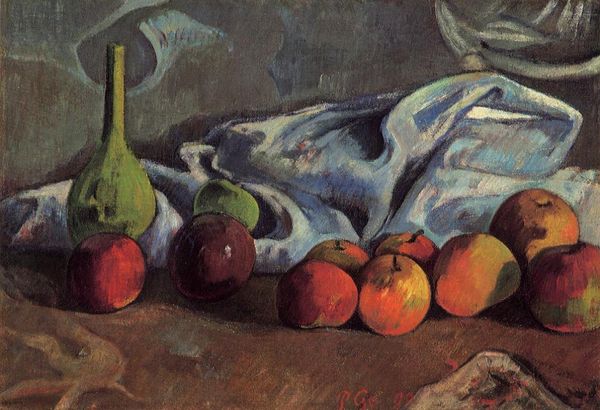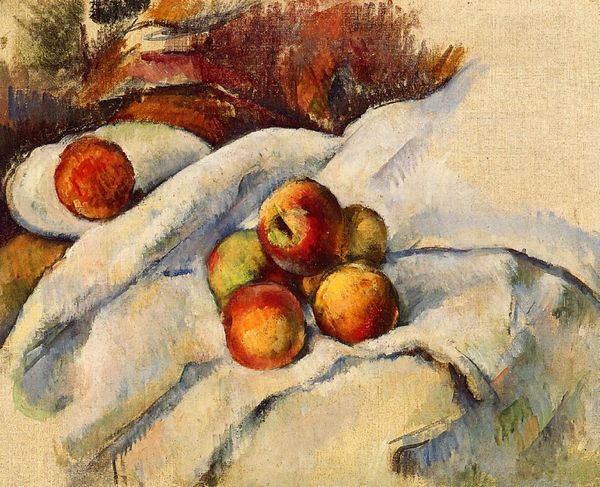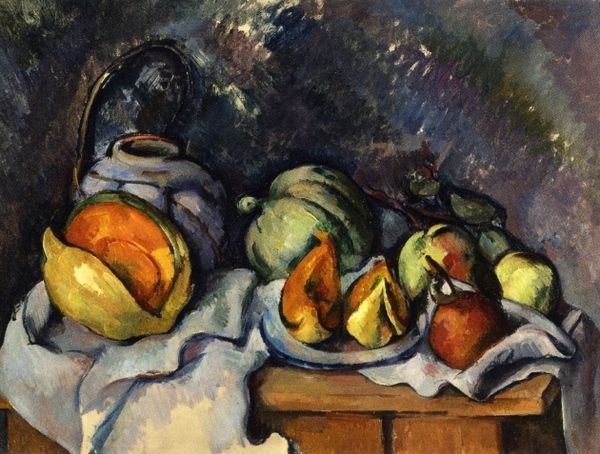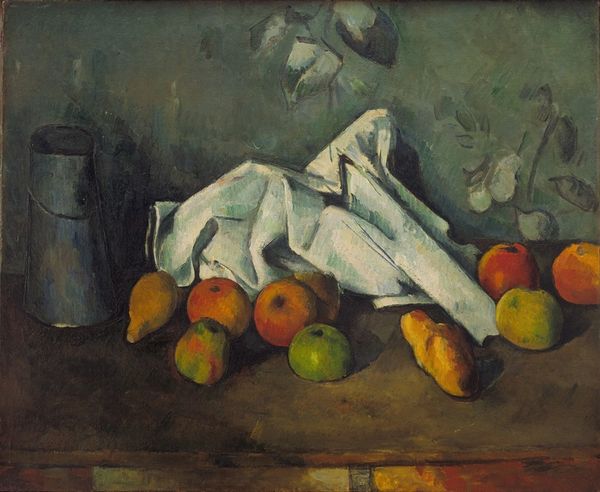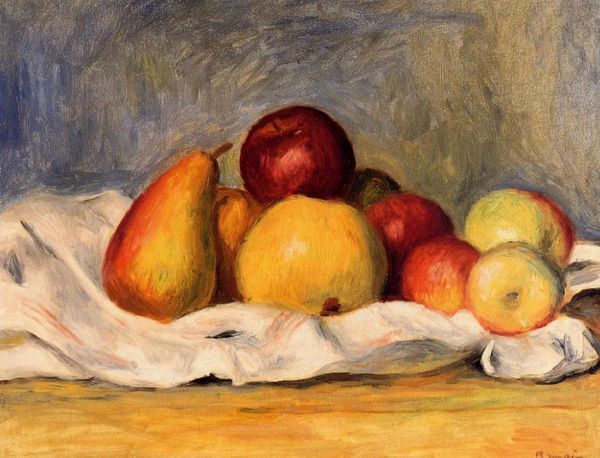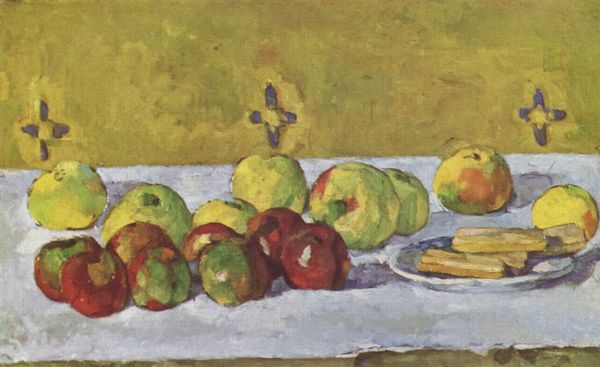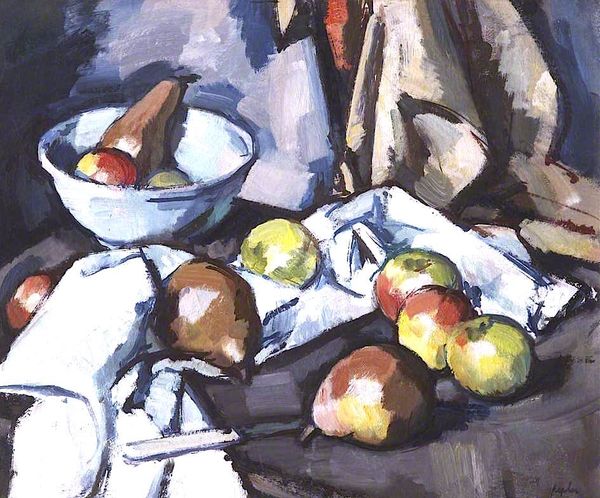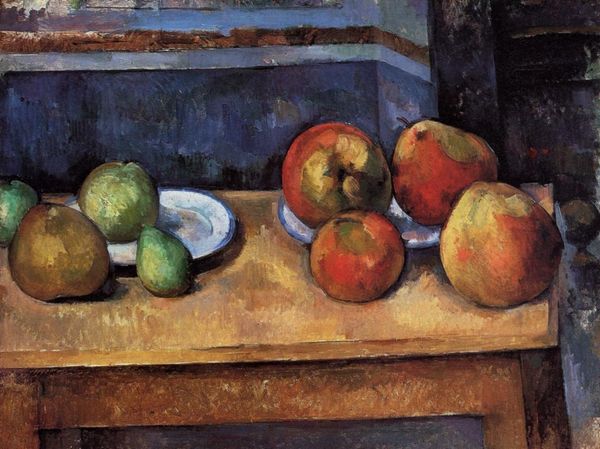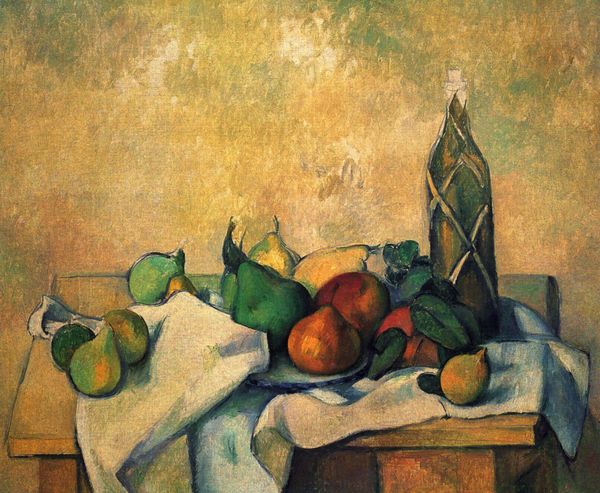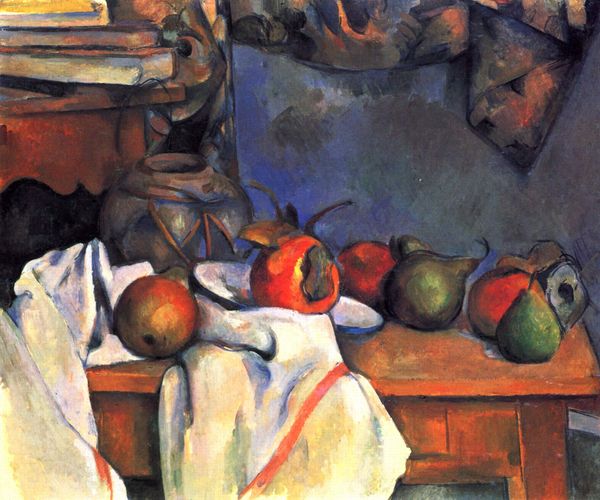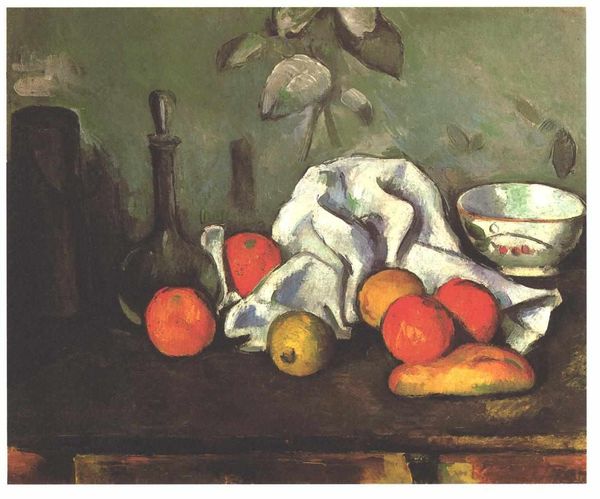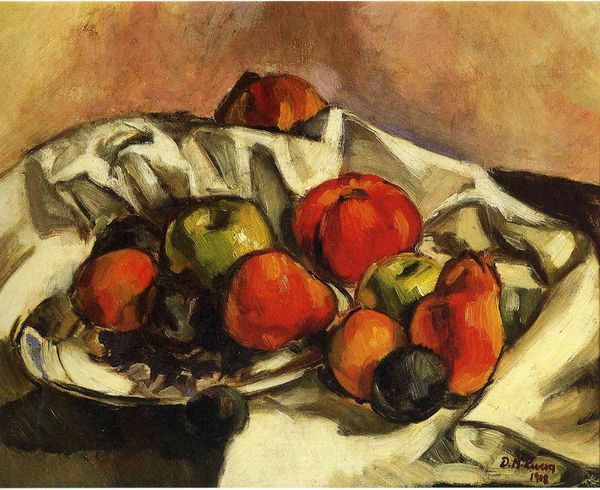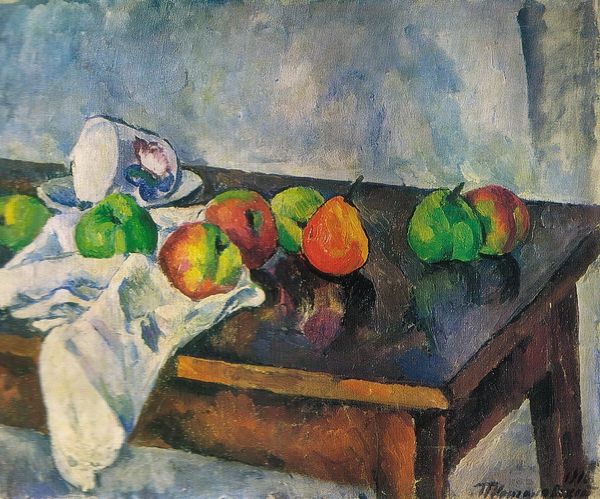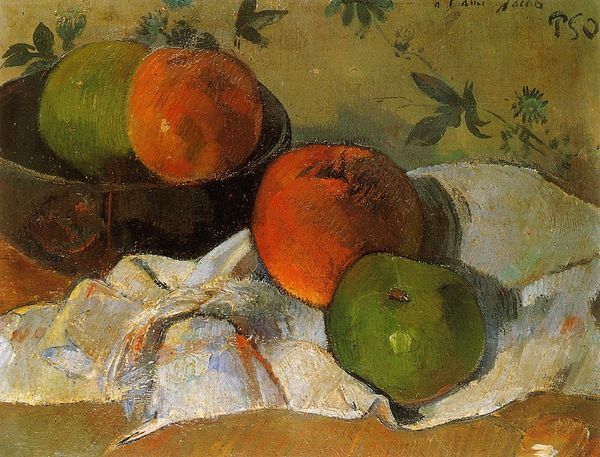
painting, oil-paint
#
painting
#
oil-paint
#
landscape
#
painted
#
oil painting
#
post-impressionism
Copyright: Public domain
Paul Cézanne's still life, "Apples and a Napkin," captures domestic objects that resonate deeply within our collective consciousness. The apples, gleaming with vibrant hues, immediately evoke the Garden of Eden, symbols of temptation and the loss of innocence. Consider how the apple motif has traversed through art history, from ancient Greek myths to Renaissance paintings. It represents not merely fruit, but deeper themes of knowledge, choice, and consequence. The crumpled napkin adds an element of everyday life, yet its stark white form reminds one of burial shrouds and sacred cloths, lending the ordinary a sense of ritual. Cézanne's apples seem to pulsate with an almost unsettling vibrancy. Perhaps this reflects our subconscious fascination with forbidden desires and mortality. As we observe the arrangement, we engage with a powerful, psychological drama staged within the quiet setting of a tabletop, a reminder of how symbols can hold a timeless grip on our human psyche.
Comments
No comments
Be the first to comment and join the conversation on the ultimate creative platform.
